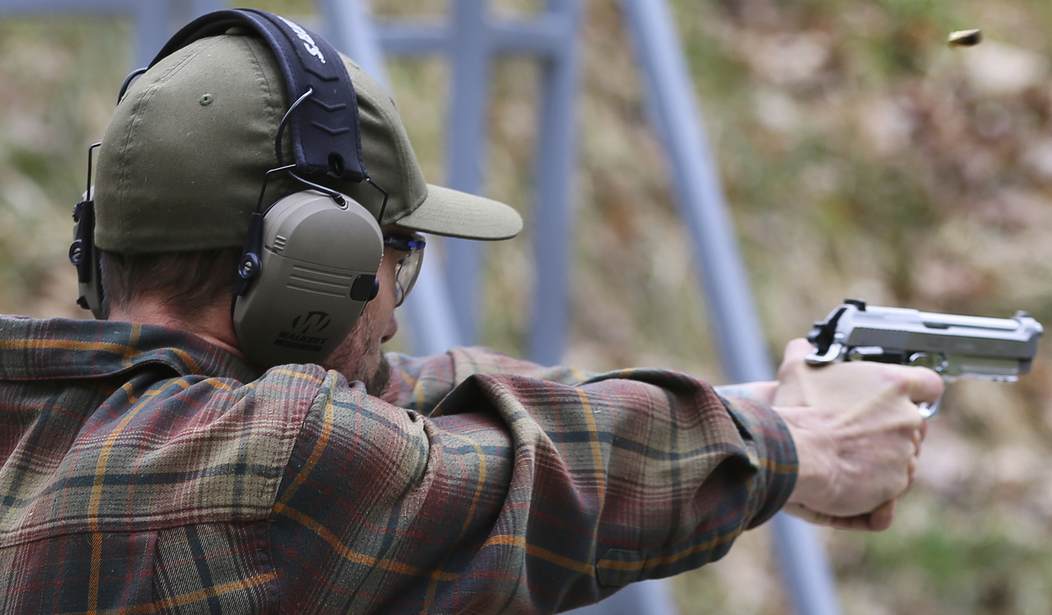The NRA has long been the boogieman for anti-Second Amendment activists. They blame the group for pretty much everything short of COVID-19, and I think they’re trying to work out a way to blame them for the pandemic.
With the failure of David Chipman’s nomination, the NRA has once again become part of the spotlight as the organization was demonized for opposing such a qualified candidate who had no appreciable leadership roles with the ATF.
However, writing over at The Atlantic, Stephen Gutowski points out that there’s more to the gun rights side than the NRA.
In the 2020 election cycle, the NRA contributed less than $1 million directly to candidates. That made it the 996th-largest donor for the cycle, according to OpenSecrets. The group spent about $5.4 million on lobbying in that same time frame, which put it a bit higher, at 169th. Since 2012, the NRA’s highest contribution ranking has been 294th, and its highest lobbying ranking has been 85th.
Congressional staffers from both sides of the aisle, several of whom asked not to be named so they could speak candidly, told me the NRA’s campaign spending is not the reason restrictions on gun ownership or use haven’t passed at the federal level in decades.
The recent withdrawal of Biden’s ATF nominee, David Chipman, shows how the group’s influence plays out in practice. The senators on whom the NRA spent money to get elected did not deliver the nomination’s knockout blow. Although the group’s lobbying did help keep Republican opposition united, Chipman’s confirmation needed just the 50 votes that the Democratic caucus could have provided. Instead, Chipman’s fate was sealed by Senator Angus King of Maine, and Democrats Joe Manchin of West Virginia, Kyrsten Sinema of Arizona, and Jon Tester of Montana.
These senators have two things in common: They never publicly supported Chipman’s nomination, and they all have D ratings from the NRA. In fact, not only has the NRA not given these senators money, but it explicitly endorsed their most recent opponents and even spent hundreds of thousands on ads opposing Manchin.
Furthermore, the NRA is the weakest it’s been in years.
So just what happened?
Well, as Gutowski notes:
“What i’m going to say is not earth-shattering: Our country is deeply divided on every issue,” a former aide to Republican Senator Pat Toomey of Pennsylvania told me. “People who have deeply held beliefs on things, they organize and they represent themselves. On the left, there’s always this narrative against anything right of center, that the group that the people use to actually represent themselves in Washington is evil. And the only reason that people do it is not because they have deeply held values; it’s because they’re paid to do it, right? It’s just not true on, really, any issue.”
Passionate opposition to restrictions on gun ownership can be formidable even when polling indicates broad support for specific proposals. “Universal background checks is a hugely popular proposal and yet doesn’t sway Republican colleagues,” the Toomey staffer said. “It’s an 80/20 issue, and 80 percent of the population supports it, but you have to look at that 20 percent. That’s intense opposition from that 20 percent. It’s probably what those people vote on. The 80 percent support it, but it’s not likely what they are voting on.”
And that’s certainly part of the issue, to be sure.
Yet Gutowski notes that while the NRA is at its weakest and it’s not “buying off” politicians, it’s not powerless.
What the NRA can do is mobilize people. Even non-members will respond when the NRA points out a threat to people’s gun rights. They’re still the 800-pound gorilla and can do plenty to stop gun control legislation.
And they’ll continue to use that power.
But at the end of the day, the NRA’s real power has always been about that. Sure, they had money to help get people elected, but right now it seems the anti-Second Amendment side has plenty of money and they still can’t seem to get gun control passed.
No, the NRA can motivate legions of vehement activists who will call members of Congress or state lawmakers and make their opinions on the subject loud and clear.
On the gun-control side, they don’t have that kind of passion. Yes, they have a handful of people who will talk about passing gun control on social media, but they don’t push quite the same way we do.
So while the NRA is weaker, it’s far from powerless, and that’s good for all of us.








Join the conversation as a VIP Member